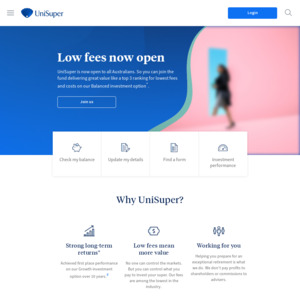Hi Guys
I was doing casual teaching during first 2 years of my PhD and from that Job I got some A$XXXX amount in my super account. Feom last couple of months, I'm not working and so they is so credit into my account. But I can see that they are charging some amount saying maintenance etc…
My question is, do they pay any interest for these savings(may not be good word to use)? For my XXXX, it may not be a big amount but if you have in 6 digits, it will be a big amount, isn't it?
Thanks in advance

Depends on what your chosen investment options is.